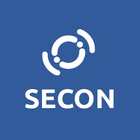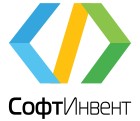CEE-SECR 2016 is the premier software engineering conference in Russia. The conference will take place on October 28-29 in Moscow. Nearly 1000 participants are expected to attend the event, representing IT industry specialists from all areas: researchers and students from computer science, IT and software engineering academia, and practitioners from industry and government.
In its past 11 years the conference was supported by Russian Venture Company, Intel, Deutsche Bank, JetBrains, SAP, SberTech, First Line Software, Oracle, EMC, Google, IBM, Microsoft, EPAM, Luxoft, IEEE, ACM, APKIT, RUSSOFT Associations, and other organizations.
In the past years, keynote lectures were delivered by Dino Esposito, Ivar Jacobson, Jeff Sutherland, Bjarne Stroustrup, and other distinguished experts.
The conference program will be composed of research presentations, experience reports, panel discussions, workshops, and express-presentations with discussions.
CEE-SECR is a multi-disciplinary conference that allows the participants to overview a wide range of software industry topics and trends, and deepen their understanding of the areas of interest, which may be adjacent to their core specialization.
Submission deadline for papers and talks proposals – 1st of August, 2016.
The review results will be sent to the authors on 31st of August, 2016.
Submission system for authors
Scope
This year we specifically welcome the high quality submissions on the trending topics.
Modern problems and tasks
This section is based on Gartner’s Top 10 Strategic Technology Trends for 2016 and 2015
- Mesh App and Service Architecture

- Internet of Things Platforms.
 Programming for Robots. Embedded Systems
Programming for Robots. Embedded Systems - Data Science. Big Data. High-Loaded Systems
- Cloud Computing

- Advanced Machine Learning.
 Context-Rich Systems
Context-Rich Systems - Web-scaled IT for Enterprise

- Ambient User Experience

- IT in Healthcare and adjacent areas (biotechnologies, neurointerfaces)
- Knowledge intensive Startups
- Mission-critical Software
Programming technologies and tools
- Programming Technologies and Tools
- System Analysis and Engineering of Requirements
- Project and Product Management. Classic and Agile methodologies, Essence/SEMAT
- Software Testing, Verification, and Analysis
- Software Architecture
- Software Security and Reliability. Adaptive Security Architecture. Security by Design
- Mobile and Cross Platform Application Development
- Human Computer Interaction. User Experience, Usability
- Open Source Technologies & Community
People and Organization
- Human Capital. Hunting and Hiring
- Continuous Professional Development: From Classical to Corporate University
- Business and Entrepreneurship in the Software Industry (Startups, Patenting, etc.)
- Effective Managed Communication
- IT As a Way of Governance – Project Specifics. Agile in government-related projects
Other topics
Any other topics related to software engineering.
Submission
Please upload the following information via the submission system :
- Topic and short description in English (and in Russian, if possible). During the review process the topic and short description will be published on the Proposals section of the conference website.The description must include 1-3 sentences covering the main point of the talk.
Examples
Example 1: “If participants have problems with designing interfaces, in my report they will be able to learn about some ways of using DSL for the modification of automatically generated forms. This approach is not covered in the current literature, but our successful implementation shows that it works.”
Example 2: “I will share my experience in communication with difficult customers based on seven years of work and over 20 successful projects, which will be presented in the form of case studies with analysis/conclusion. I think that participants will be able to apply this knowledge in their daily work, since some of these situations have occurred more than once with different clients.”
- Extended annotation (1800 characters or more) in English or Russian. During the review process the publication of an abstract on the conference website is optional (at the author’s discretion).The content of the extended annotation should fully reflect the essence of the final report. It should clearly state not only the subject area of the report, but also the specific issues which will be covered, as well as the scientific, technological or innovative solutions offered by authors.Please do not send lists of slides, promotional materials, links to forums, or previously-published reports or articles in place of the extended annotation.Many authors describe a problem and its importance and promise to reveal the solution in their report. This is not enough: the solution itself should be stated and justified, whether it is an original idea, a new combination of ideas, or a successful practice. The relevance of the problem should be shown, with references to literature or other open sources (especially for articles).If the author positions the report as a scientific work, he/she should replace the extended annotation with a full article (up to 10 pages) formatted in accordance with the standard ACM requirements for scientific papers (View ACM templates). During the review process the article will not be published on the conference website.For workshop proposals please also state the following: the workshop duration, target audience, program. During the review process this information will not be published on the conference website.
- Author(s) photo and a short bio of 3-5 sentences. Authors are encouraged to share links to their published works, public presentations, and social-networking profiles. During the review process the publication of the bio and photo on the conference website is optional (at the author’s discretion).
In addition, please specify the following:
- The type of your talk: a presentation of scientific research results that can be used; a presentation of ideas for action by analogy; an informational overview; a technology presentation; new technology training; new tool training; a case study, including the experience of using technology.
- The subject of your talk: one or more areas from the conference Scope (above).
The following materials will not be accepted:
- Promotional presentations and articles (designed to promote a company, product or service)
- Presentations previously delivered at other conferences
- Papers previously published or accepted by another conference or journal.
Review procedure
After the proposal has been received, the Program committee representatives can ask questions or give recommendations to the author. If the proposal is compliant with the requirements, it is published in the Proposals section of the conference website. The author can correct the proposal via the submission system until August 1st.
After August 1st the final review is conducted by the Program committee. Extended annotations (for talks) or full articles (for all papers) are reviewed by at least three members of the Program committee, who can recommend the proposal for inclusion in the conference Program and give their recommendations to the authors. Some proposals can be accepted conditionally, with a request to the author to provide some additional information. Upon receiving this information, additional voting for these proposals shall be organized.
After the final decision has been made, a notification will be sent to the author, and the list of accepted talks / articles will be published at the conference web-site.
Timing and Equipment
- 15 – 40 minutes will be allocated for presentation, including time for discussion, and 1-8 hours for workshops.
- Each room will be equipped with a plasma screen and a PC.
- Presentation languages: Russian or English.
Author benefits
- One free conference pass per accepted paper will be given to the speaker making the presentation.
- The author of the best research paper will receive the Bertrand Meyer Award (40 000 Rubles).
- The scientific articles (full papers) may be published in ACM Digital Library.
- Videos, slides, report annotations, and the bios of the authors are published on the conference website.
Important dates
- August 1, 2016 – Submission deadline
Authors are encouraged to submit proposals in advance in order to be able to improve their proposals on the basis of the program committee’s preliminary review. Proposals submitted after July 15th won’t receive preliminary review. - August 31, 2016 – Acceptance notification
- September 30, 2016 Camera-ready submission deadline
- October 28-29, 2016 – Main Conference days
- October 30, 2016 – Master-class and workshop day
Contacts
Nick Puntikov, Chair of CEE-SECR 2016
Julia Kryuchkova, Secretary of CEE-SECR 2016
Moscow: +7 499 703 16 55
Saint-Petersburg: +7 812 336 93 44
contact@secrus.org
 Русский
Русский 























